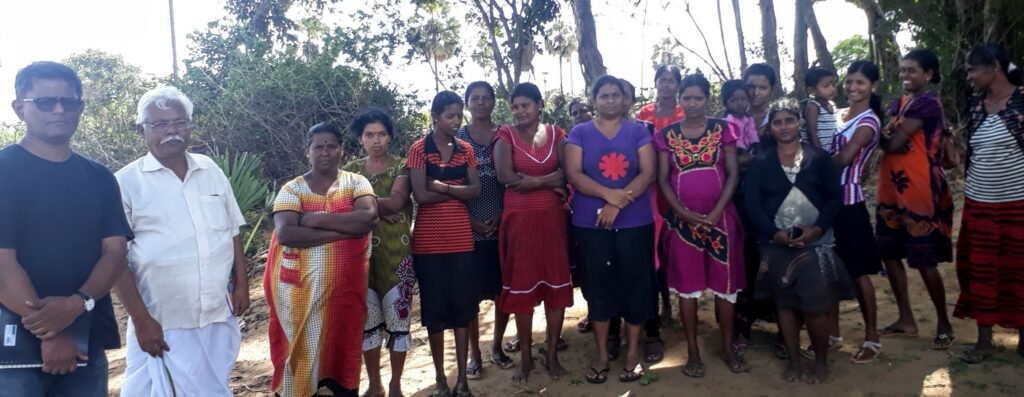Read in : தமிழ்
Sri Lanka is struggling with a severe food crisis. The food prices have skyrocketed and people are struggling to manage food inflation. Talks are rife that the country’s decision to switch to organic farming from the conventional farming methods of using chemical inputs caused the crisis.
There are many non-profit organizations in India promoting organic farming among the people. Auroville based Sustainable Livelihood Institution is one such organization. The president of the organization Ramasubramaniam has been promoting organic farming for the last 20 years. He is an expert in marketing the organic products of the farmers.
Ramasubramaniam started an online magazine for organic farming in 1999. He has formed a technical team on organic farming and is involved in policy promulgation on organic farming. Inmathi talked to him about the allegations of organic farming behind the food crisis of Sri Lanka.
Sri Lankan government announced the decision to switch over to organic farming overnight. The government did not have any plan or road map to achieve this

Ramasubramaniam, president Sustainable Livelihood Institution
Question: What do you think of the food crisis in Sri Lanka?
Answer: I am aware of it and following it. After the civil war ended in 2009, the Island nation’s economy is in doldrums. The pandemic worsened their economy further. The Sri Lankan government, in an effort to contain the situation, implemented various measures. One among them was banning the import of chemical fertilizers. The government also announced promoting organic farming in the country.
Question: Do you think such measures yield expected results?
Answer: It is an arbitrary decision of the Sri Lankan government without studying the ground reality. The country’s agriculture sector, say 95%, depends on chemical inputs like urea, potash and pesticides including weedicides. The information from the field confirms it. The government announced the decision to switch over to organic farming overnight.
The government did not have any plan or road map to achieve this. They wanted to stop foreign exchange outgo in procuring chemical inputs for agriculture. The farmers don’t know how to use organic farming methods and it has caused a stir in the country. As a damage control measure, the Sri Lankan government has announced that it will permit private parties to sell chemical inputs but it won’t indulge in importing fertilizers. It has also appealed to the Chinese and Indian governments to provide time to repay the loans.
India is an agricultural country. But organic farming receives very little support from government, government agencies and agricultural universities.
Question: In such a case, why is organic farming linked to the food crisis in Sri Lanka?
Answer: The results of switching from one method of farming to another would be learnt only after a cultivation season. It would take at least four to six months. Even before any such results, the entire world is abuzz linking the food crisis in Sri Lanka to organic farming. It appears like a conspiracy of multinational companies producing agricultural chemical inputs. All this talk of food crisis is resulting in food product inflation in Sri Lanka. It is an illusion created by vested interests.
Question: At policy level, do you think the Sri Lankan government is right?
Answer: The way the Sri Lankan government announced this change in farming is a wrong precedence. No change can be forced on farmers. We are facing such a situation in India too of late.
Question: Why are you saying it was a wrong precedence?
Answer: India is an agricultural country. But organic farming receives very little support from government, government agencies and agricultural universities. I would say there is no support at all. I submitted a research paper in JNU eight years ago. In that paper, I have analyzed the support provided to organic farming in the country. There is not much syllabus on organic farming in agricultural universities. Out of 52 institutions teaching agriculture in India, only two have centres for organic farming.
The awareness on organic farming in India is due to a few individuals like Nammalvar. Organic farming is not growing with government support in India. A policy decision of the government won’t change agriculture all of a sudden because it is a lengthy process. When court intervention was sought to prevent the use of dangerous pesticides like endosulfan, the government argued that it would deprive the livelihood of many. Organic farming in India is growing, crossing all these impediments. The state and centre are coming out with some measures on organic farming at present.
Soil fertility matters a lot in organic farming. The fertility should be increased using organic fertilizers. Our Indian farmers have achieved this
Question: What is the situation in Sri Lanka?
Answer: I went to Sri Lanka some years ago to promote organic farming. There is enough scope to take out organic farming. But there are certain issues on soil fertility. The soil is barren because of the indiscriminate use of chemical fertilizers. I have trained some Sri Lankans in organic farming.
The soil quality has to be fixed in the first place. Soil fertility matters a lot in organic farming. The fertility should be increased using organic fertilizers. Our Indian farmers have achieved this.
Crop rotation is also a must in organic farming. The seeds should be organic. It is a coordination of organic seed, fertilizers and organic pest control methods. An overnight policy announcement can’t achieve this change.
Question: The Sri Lankan government had sought to import organic inputs from China but turned away the ship citing problems. Didn’t this cause a major economic loss?
Answer: It is curious, I would say. If the Sri Lankan government was so keen to promote organic farming, it should have discussed it with the farming community in the country. It was an unplanned move and it shows the irresponsible attitude of the Sri Lankan government when it comes to implementing a policy change. I insist that change in agriculture won’t happen in a single day. It is not acceptable that organic farming is causing the food crisis in Sri Lanka. It is propaganda driven by multinationals. Such propaganda should not be taken seriously. A gradual and consistent shifting to organic farming will make Sri Lanka self-sufficient in food production.
Read in : தமிழ்
